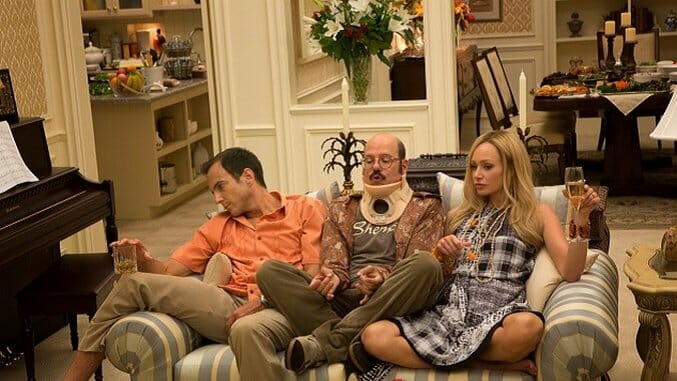Arrested Development’s Remixed Fourth Season Misses the Point
Images via Netflix
What a weird time to be alive and watching TV. For example: Many many years ago, TV shows were on the air for either a year or a few years or many years, and then they stopped. This is how Seinfeld worked. This is how M*A*S*H* worked. It’s even how Heil Honey I’m Home! worked. Then, not too long ago, one particular TV show aired for three seasons. It was critically beloved, but, at the time, no one was watching it, though by today’s standards a lot of people were watching it, though people still say no one was watching it. And then it ended and everyone was very mad and lobbied for years for someone to bring the show back, or at least to make the TV show into a movie, which doesn’t happen, except for the time it did with a show about space cowboys that actually no one had watched.
And then something like seven years later, it actually did happen, the show came back, except this time it was online. And half the people who had wanted it so much for so long said “I loved that,” and the other half said “I did not love that.” And that was the end of that.
-

-

-

-

-

-

-

-

-

-

-

-

-

-

-

-

-

-

-

-

-

-

-

-

-

-

-

-

-

-

-

-

-

-

-

-

-

-

-

-








































